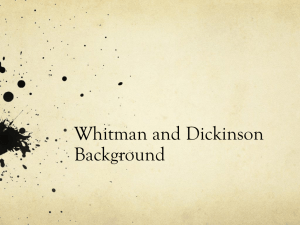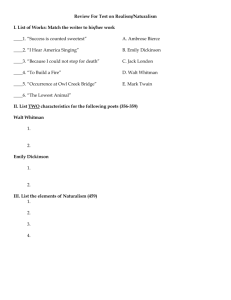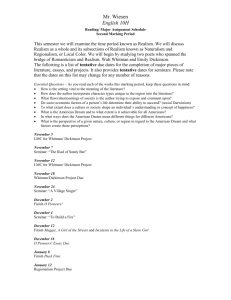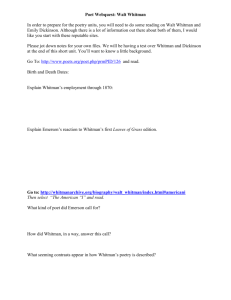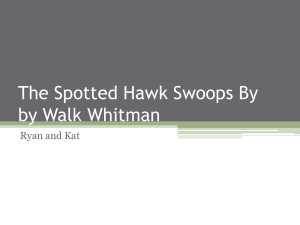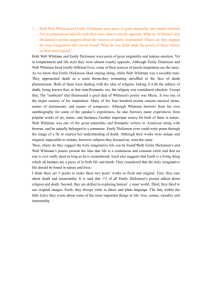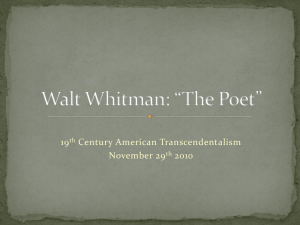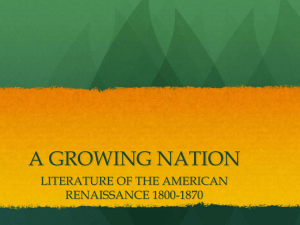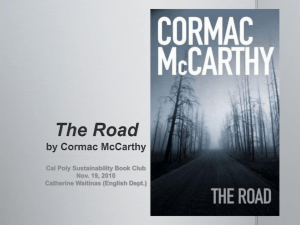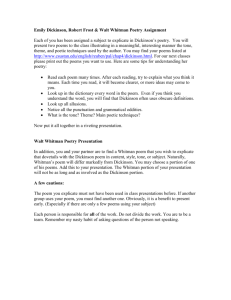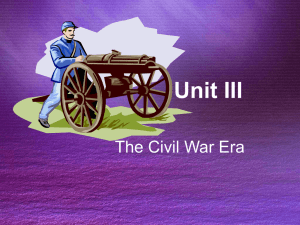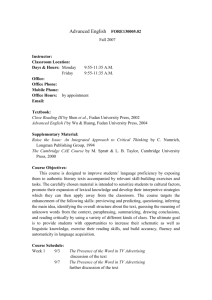Whitman and Dickinson Quiz.doc
advertisement
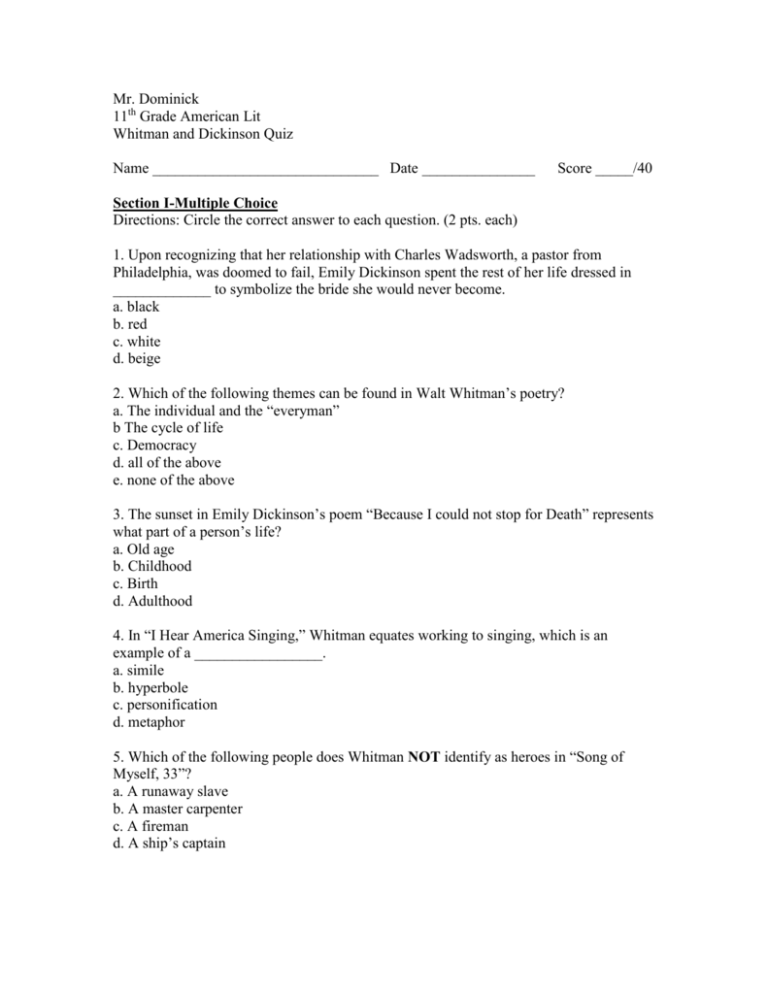
Mr. Dominick 11th Grade American Lit Whitman and Dickinson Quiz Name ______________________________ Date _______________ Score _____/40 Section I-Multiple Choice Directions: Circle the correct answer to each question. (2 pts. each) 1. Upon recognizing that her relationship with Charles Wadsworth, a pastor from Philadelphia, was doomed to fail, Emily Dickinson spent the rest of her life dressed in _____________ to symbolize the bride she would never become. a. black b. red c. white d. beige 2. Which of the following themes can be found in Walt Whitman’s poetry? a. The individual and the “everyman” b The cycle of life c. Democracy d. all of the above e. none of the above 3. The sunset in Emily Dickinson’s poem “Because I could not stop for Death” represents what part of a person’s life? a. Old age b. Childhood c. Birth d. Adulthood 4. In “I Hear America Singing,” Whitman equates working to singing, which is an example of a _________________. a. simile b. hyperbole c. personification d. metaphor 5. Which of the following people does Whitman NOT identify as heroes in “Song of Myself, 33”? a. A runaway slave b. A master carpenter c. A fireman d. A ship’s captain 6. Why did Walt Whitman begin a journey across America in 1849? a. He was bored and believed such a journey would cure him of his boredom. b. He was writing a story for a local newspaper in New York. c. His mother moved out to the West Coast, and he was going to visit her. d. He wanted to gain inspiration for his poetry by experiencing all of America. 7. Where does the speaker in “Some keep the Sabbath going to Church” find God instead of a church? a. Her orchard b. A dark room c. A bar d. Her husband’s arms 8. What do the “Chariots” in “The Soul selects her own Society” represent for the speaker? a. Royalty trying to impress her b. People trying to be friends with her c. Men trying to court her d. Her family coming over for dinner 9. Walt Whitman was and is affectionately known as “____________ first poet.” a. “New York’s” b. “America’s” c. “Long Island’s” d. “this land’s” 10. In “If you were coming in the Fall,” the speaker compares the uncertainty surrounding the next time she will see her lover to the sting of a __________ that never happens. a. hornet b. wasp c. bee d. yellow jacket 11. Dickinson portrays Death as a kind gentleman coming to take her out for the evening in “Because I could not stop for Death,” which is an example of ___________________. a. personification b. simile c. alliteration d. metaphor 12. Why does the speaker in “Tell all the truth but tell it slant” believe it is always a good idea to never reveal the whole truth? a. She thinks there is nothing wrong with telling little white lies. b. Some people’s feelings could be hurt by revealing the whole truth. c. The light of truth is too bright for any one person to bear. d. all of the above e. none of the above 13. Whose sermon, according to the speaker in “Some keep the Sabbath going to Church,” is never too long? a. A local pastor’s b. God’s c. Her mother’s d. Her husband’s 14. In “I taste a liquor never brewed,” the speaker compares the feeling of being inspired to the feeling of a. being intoxicated. b. being weightless. c. being in love. d. being in the ocean. 15. Dickinson’s “The Soul selects her own Society” represents which of the following themes of her poetry the best? a. The power of nature b. Truth and madness c. Death d. “Alone time” Section II-Short Answer Questions Directions: Answer the following short answer questions in complete sentences. If you can, give specific facts from the text(s) to prove your point. Your answers should be approximately three to four sentences long. Points will be deducted for questions answered in incomplete sentences. (5 pts. each) 16. According to the speaker in “Much madness in divinest sense,” who are the only sensible people in the world? What group is pointed out as being not sensible? Why do you think she feels this way? 17. Whitman’s “Song of Myself, 10” shows several snapshots from daily American life. Describe one of the two situations that Whitman identifies as non-traditional. Why would these situations be non-traditional during Whitman’s time period?
